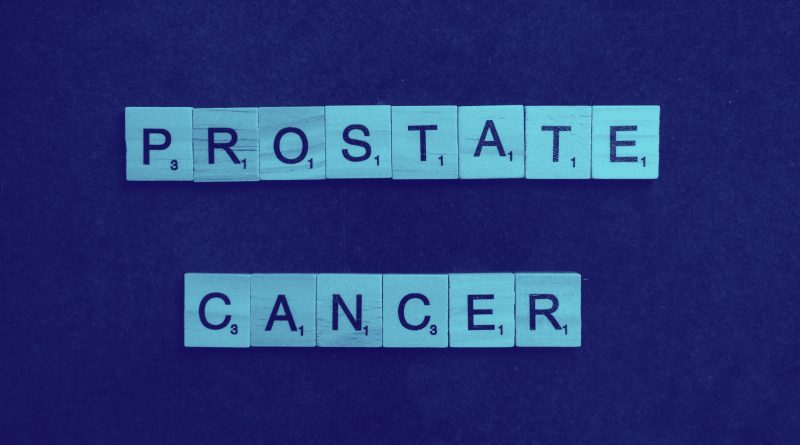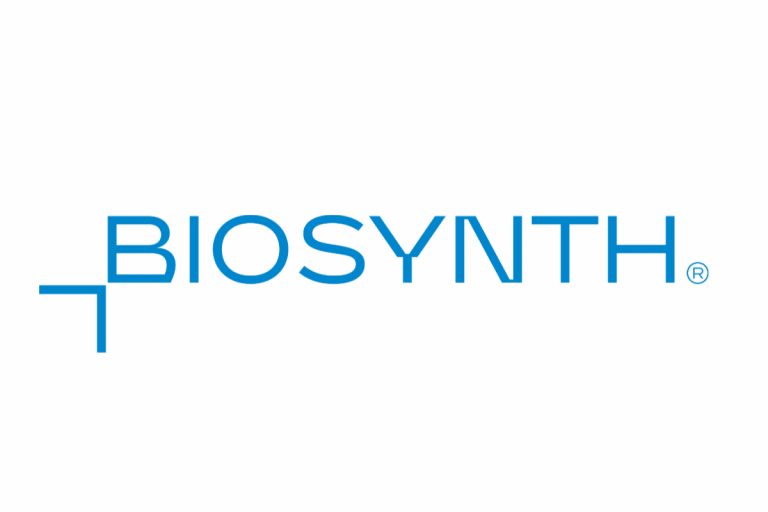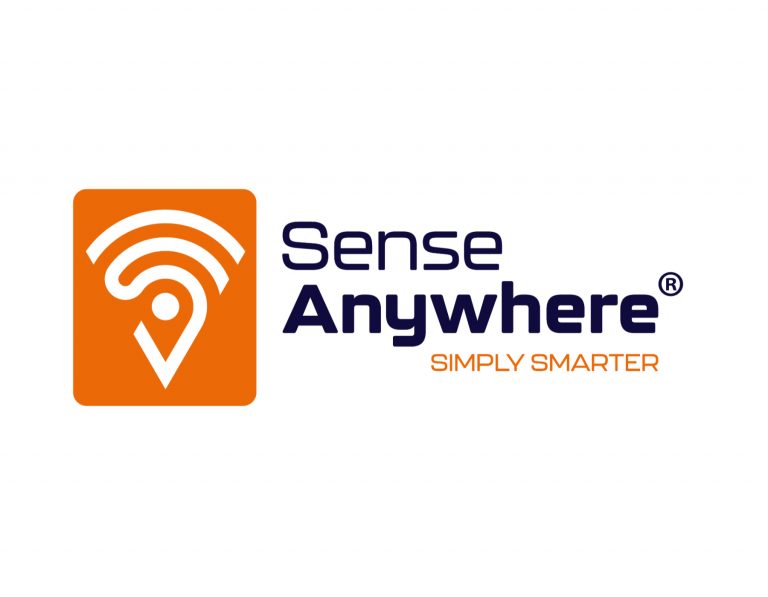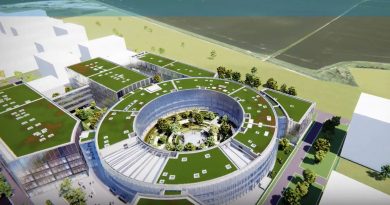Janssen Claims First Global Approval for AKEEGA®
Janssen has received its first worldwide approval for AKEEGA® (Niraparib and Abiraterone Acetate Dual Action Tablet) as EC Authorized treatment for Metastatic Castration Resistant Prostate Cancer with BRCA1/2 Mutations. The authorization of AKEEGA® is grounded on findings from the Phase 3 MAGNITUDE study, a precision medicine trial that was prospectively designed and encompasses the largest-ever cohort of BRCA1/2-positive patients with untreated metastatic castration-resistant prostate cancer (mCRPC).
The Janssen Pharmaceutical Companies of Johnson & Johnson announced on Friday that the European Commission (EC) has granted marketing authorisation for AKEEGA® (niraparib and abiraterone acetate [AA]), in the form of a dual action tablet (DAT), given with prednisone or prednisolone, for the treatment of adults with metastatic castration-resistant prostate cancer (mCRPC) and BRCA1/2 mutations (germline and/or somatic) in whom chemotherapy is not clinically indicated.
Prostate cancer is the prevailing cancer among men in Europe, and the sixth-highest cause of cancer-related death worldwide. Despite treatment advances, mCRPC remains an incurable, fatal disease. BRCA1/2 gene mutations have been identified in approximately 10-15 percent of mCRPC patients and are more likely to cause aggressive disease, poor outcomes, and a shorter survival time.
Professor Gerhardt Attard, Oncologist, University College London (UCL), London, UK said:
“Metastatic castration-resistant prostate cancer remains a lethal disease, with high unmet needs in terms of treatment options, particularly for patients with BRCA1/2 gene mutations. We’ve seen that in these patients, niraparib combined with abiraterone acetate and predniso(lo)ne (AAP) significantly reduced the risk of disease progression or death compared to AAP. The dual action tablet of niraparib with abiraterone acetate is a promising first line targeted treatment option for men with mCRPC and BRCA1/2 mutations.”
The EC authorisation, which also marks the first worldwide approval for AKEEGA®, is based on results of the randomised, double-blind, placebo controlled, Phase 3 MAGNITUDE study (NCT03748641). The trial evaluated whether the addition of niraparib to AAP improved outcomes in those with untreated mCRPC, with or without alterations in homologous recombination repair (HRR) associated genes (which are involved in the repair of damaged DNA), including BRCA1/2. A total of 423 patients with HRR gene alterations were enrolled, 225 (53.2 percent) of whom had BRCA mutations, making it the largest cohort of BRCA1/2-positive patients with first line mCRPC in any clinical study to date.
Martin Vogel, EMEA Therapeutic Area Lead Oncology, Janssen-Cilag GmbH stated:
“The MAGNITUDE trial was prospectively designed as a precision medicine study to identify the specific population of patients who would most benefit from niraparib with abiraterone acetate plus predniso(lo)ne, and potentially increase the likelihood of treatment success. The results, on which this European Commission approval is based, reinforce the benefit of this niraparib-based combination in effectively addressing BRCA mutations and changing the outlook for patients with mCRPC.”
Positive Results from Phase 3 MAGNITUDE Study: Niraparib Plus AAP Improves Radiographic Progression-Free Survival in HRR-Positive Patients, Especially in BRCA1/2 Mutation Carriers
The primary endpoint for MAGNITUDE was radiographic progression-free survival (rPFS), as analysed by blinded central review. Niraparib plus AAP significantly improved rPFS in all HRR-positive patients (Hazard Ratio [HR] 0.73; 95% Confidence Interval [CI], 0.56 to 0.96; p=0.022). This improvement was most pronounced in patients with BRCA1/2 gene mutations, where a statistically significant 47% risk reduction was observed for rPFS. With additional median follow-up at 24.8 months in the BRCA subgroup, rPFS by central review demonstrated a consistent and clinically meaningful treatment effect favouring niraparib plus AAP, with a median rPFS of 19.5 months compared with 10.9 months for placebo plus AAP. Additionally, there was a trend towards improved overall survival (OS) with niraparib plus AAP, strong improvement in time to symptomatic progression (TSP) and clinically meaningful improvement in time-to-initiation of cytotoxic chemotherapy (TCC).
The observed safety profile of the combination of niraparib and AAP was consistent with the known safety profile of each agent. Of the patients with HRR gene alterations, 67% experienced Grade 3/4 adverse events (AEs) in the combination arm versus 46.4% in the control arm. The most common grade 3 AEs were anaemia (28.3% versus 7.6%) and hypertension (14.6% versus 12.3%) with niraparib and AAP versus placebo and AAP, respectively. The combination of niraparib and AAP also maintained overall quality of life in comparison with placebo and AAP.
Peter Lebowitz, M.D., Ph.D., Global Therapeutic Area Head, Oncology, Janssen Research & Development, LLC said:
“This European milestone, which also marks the first worldwide approval for AKEEGA®, highlights the value of precision medicine and the importance of genetic testing in patients with mCRPC to ensure the right patients receive the right treatment. It also demonstrates our ongoing commitment at Janssen to developing innovative therapeutic approaches to help improve outcomes for patients living with prostate cancer.”
Niraparib is a highly selective poly adenosine diphosphate-ribose polymerase (PARP) inhibitor.14 Together with AA plus prednisone, the combination DAT regimen targets two oncogenic drivers in patients with mCRPC, namely alterations in the androgen receptor axis and in BRCA1/2. This is the first DAT formulation available in the European Union for patients with mCRPC with BRCA mutations.
Europe is the first region to approve AKEEGA® (niraparib and abiraterone acetate DAT), for the treatment of patients with BRCA-positive mCRPC, globally. In February 2023, Janssen submitted a New Drug Application (NDA) to the U.S. Food and Drug Administration (FDA) seeking approval of this niraparib-based combination for the treatment of patients with BRCA-positive mCRPC.
More about Niraparib
Niraparib is an orally administered, highly selective poly (ADP ribose) polymerase (PARP) inhibitor, that is currently being studied by Janssen for the treatment of patients with prostate cancer. Additional ongoing studies include the Phase 3 AMPLITUDE study (NCT04497844) evaluating the combination of niraparib and AAP in a homologous recombination repair (HRR) biomarker-selected patient population with metastatic hormone-sensitive prostate cancer (mHSPC).
In April 2016, Janssen Biotech, Inc. entered into a worldwide (except Japan) collaboration and license agreement with TESARO, Inc. (acquired by GSK in 2019), for exclusive rights to niraparib in prostate cancer.
In the European Economic Area (EEA), niraparib is already indicated as monotherapy for the maintenance treatment of adult patients with advanced epithelial high-grade ovarian, fallopian tube, or primary peritoneal cancer who are in a complete or partial response following completion of first-line platinum-based chemotherapy; and as monotherapy for the maintenance treatment of adult patients with platinum-sensitive relapsed high grade serous epithelial ovarian, fallopian tube, or primary peritoneal cancer who are in complete or partial response to platinum-based chemotherapy. In these indications, niraparib is currently marketed by GSK as ZEJULA®.
AKEEGA® is a dual action tablet (DAT) combining niraparib and abiraterone acetate (AA). It is available in two dose strengths: regular-strength (100 mg niraparib/500 mg AA) and low-strength (50 mg niraparib/500 mg AA). The recommended dose of AKEEGA® is 200 mg niraparib and 1,000 mg AA daily.
About abiraterone acetate
Abiraterone acetate (AA) is an orally administered androgen biosynthesis inhibitor. In the EEA, AA is indicated with prednisone or prednisolone for the treatment of newly diagnosed high risk mHSPC in adult men in combination with androgen deprivation therapy (ADT); the treatment of metastatic castration-resistant prostate cancer (mCRPC) in adult men who are asymptomatic or mildly symptomatic after failure of ADT in whom chemotherapy is not yet clinically indicated; and the treatment of mCRPC in adult men whose disease has progressed on or after a docetaxel-based chemotherapy regimen. Janssen-Cilag International NV currently market AA as ZYTIGA®.
About Metastatic Castration-Resistant Prostate Cancer
mCRPC characterises cancer that no longer responds to ADT and has spread to other parts of the body. The most common metastatic sites are bones, followed by the lymph nodes, liver and lungs. Prostate cancer is the most common cancer in men in Europe.4 In 2020, more than one million men around the world were diagnosed with prostate cancer. Patients with mCRPC and HRR gene alterations, of which BRCA mutations are the most common, are more likely to have aggressive disease, poor outcomes and a shorter survival time.
About the MAGNITUDE Phase 3 Study
MAGNITUDE (NCT03748641) is a Phase 3 randomised, double-blind, placebo-controlled, multicentre clinical study evaluating the safety and efficacy of the combination of niraparib and AA and predniso(lo)ne (AAP) for patients with mCRPC (n=765), with or without certain HRR gene alterations and who have not received prior therapy for mCRPC except for standard of care, next-generation androgen receptor inhibitors and up to four months of AAP. The study includes patients with (HRR biomarker [BM] positive; ATM, BRCA1, BRCA2, BRIP1, CDK12, CHEK2, FANCA, HDAC2, PALB2) and without specified gene alterations (HRR BM negative), who were randomised 1:1 to receive niraparib 200 mg once daily plus AAP or placebo plus AAP. A total of 423 patients with HRR gene alterations were enrolled, 225 (53.2 percent) of whom had BRCA mutations. Additionally in an open-label cohort of HRR-positive patients, all patients received the DAT formulation of niraparib and AA plus prednisone.16 The primary endpoint of the MAGNITUDE trial is radiographic progression-free survival (rPFS) assessed by blinded independent central review. Secondary endpoints include time-to-initiation of cytotoxic chemotherapy, time to symptomatic progression and overall survival.
About the Janssen Pharmaceutical Companies of Johnson & Johnson
Janssen aims to create a future where disease is a thing of the past. The Pharmaceutical Companies of Johnson & Johnson are dedicated to make that future a reality for patients everywhere by fighting sickness with science, improving access with ingenuity and healing hopelessness with heart. The organisation’s focus is on areas of medicine where we can make the biggest difference: Cardiovascular, Metabolism & Retina; Immunology; Infectious Diseases & Vaccines; Neuroscience; Oncology; and Pulmonary Hypertension.
Learn more at: www.janssen.com/emea/
Recommended Companies
More Headlines








